
U.S. Fulbrighters
-
Home U.S. Fulbrighters
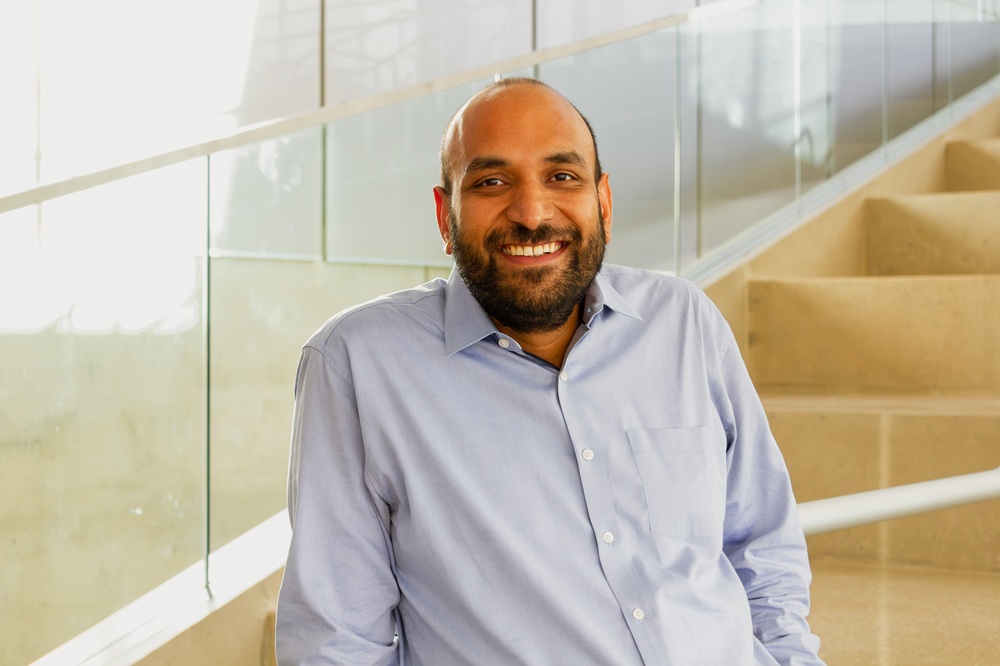
Bhati, Abhishek
Abhishek Bhati
Read more

Abhishek Bhati
| Grant Category: | Fulbright-Nehru Academic & Professional Excellence Award (Research) |
| Project Title: | Impact of Artificial Intelligence (AI) Technology on the Civil Society Sector |
| Field of Study: | Public Administration |
| Home Institution: | Bowling Green State University, Bowling Green, OH |
| Host Institution: | Indian Institute of Technology Delhi, New Delhi, Delhi |
| Grant Start Month: | September 2025 |
| Duration of Grant: | Six months |
Brief Bio:
Dr. Abhishek Bhati is an associate professor of political science and director of the Asian Studies Program at Bowling Green State University, Ohio. He holds a PhD in public administration from the University of Nebraska, Omaha, and an MA from Tata Institute of Social Sciences (TISS), Mumbai. His research focuses on nonprofit and civil society organizations. Specifically, Dr. Bhati examines how nonprofit and civil society organizations mobilize resources to advance their mission and support public good. He was awarded the Wilson C. “Bill” Fundraising Research Award in 2021 and was a social impact strategy doctoral fellow at the School of Social Policy & Practice, University of Pennsylvania.
Dr. Bhati’s work has appeared in top nonprofit and public administration journals such as Public Administration Review and Nonprofit and Voluntary Sector Quarterly. In 2022, his work received the best paper award from Voluntas: International Journal of Voluntary and Nonprofit Organizations. Beyond his academic responsibilities, he serves on the Planning Commission of the city of Bowling Green.
Dr. Bhati’s Fulbright-Nehru research project is focusing on understanding how nonprofit and civil society organizations (CSOs) are using generative AI tools to advance their mission; it is also studying the potential pitfalls or challenges to the use of this emerging technology. The study is using a mixed-method research design by conducting an online survey and interviews with CSOs and other stakeholders in India. This research aims to benefit CSOs and policymakers by helping them understand the impact of “disruptive technologies” on the global civil society sector.
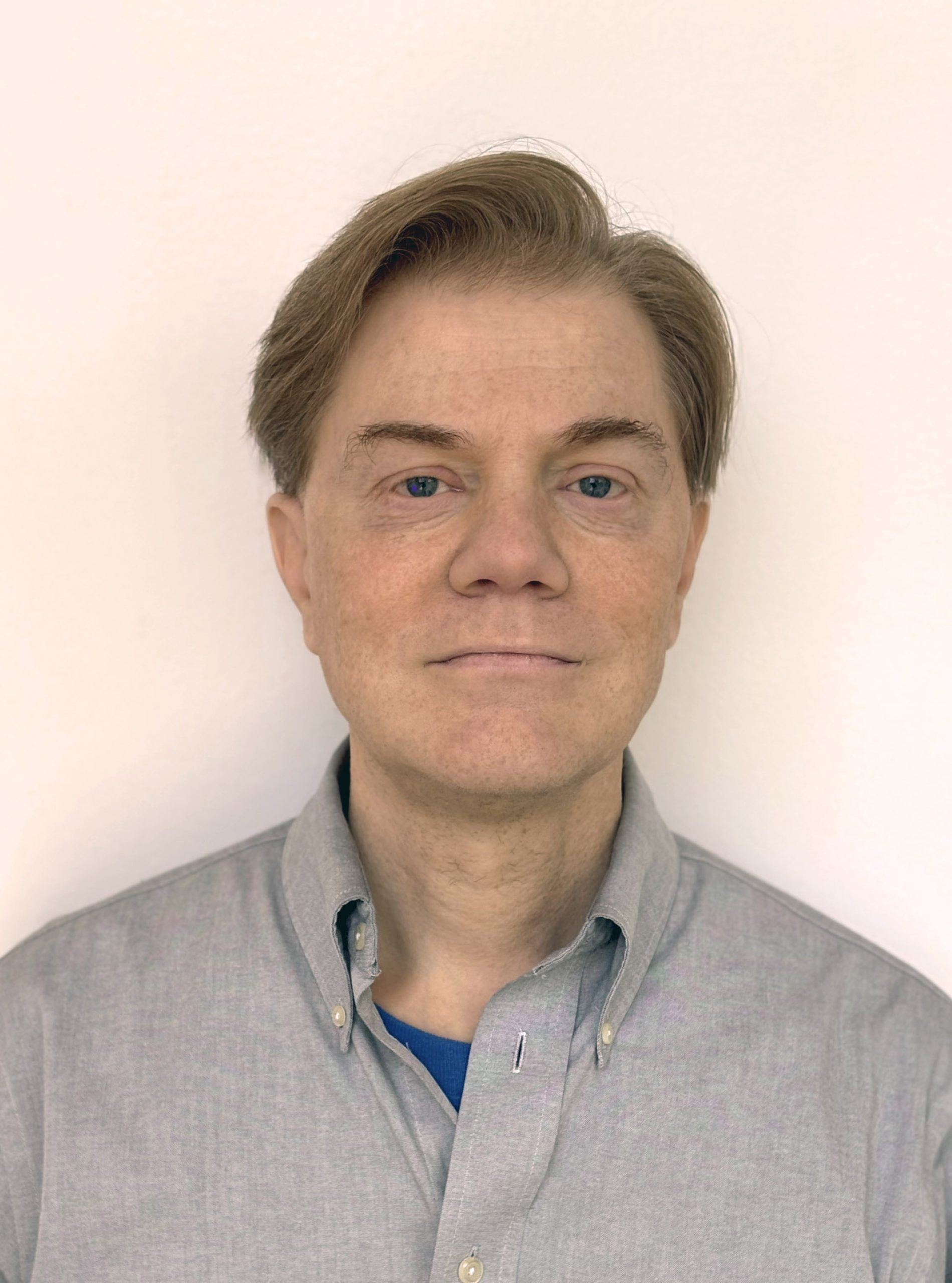
Efurd, David
David Efurd
Read more

David Efurd
| Grant Category: | Fulbright-Nehru Academic & Professional Excellence Award (Research) |
| Project Title: | The Caitya Hall at Karle and Its Milieu: Design and Order in Early Buddhist Monuments |
| Field of Study: | Art History |
| Home Institution: | Wofford College, Spartanburg, SC |
| Host Institution: | Deccan College Post-Graduate & Research Institute (deemed-to-be university), Pune, Maharashtra |
| Grant Start Month: | September 2025 |
| Duration of Grant: | Nine months |
Brief Bio:
Dr. David Efurd is associate professor in the Department of Art and Art History at Wofford College where he also serves as coordinator of Asian studies and co-coordinator of Ancient World studies. He teaches various courses about global artistic traditions which contribute to Wofford’s curricula in Asian studies, Chinese studies, and Middle Eastern and North African studies. He received his PhD in history of art (South Asia) from Ohio State University and his MA in art history from the University of Georgia. Dr. Efurd has also a BFA in painting and drawing from Cornell University where he began pursuing his lifelong interest in darkroom and digital photography.
With South Asia as his research field, Dr. Efurd studies early Buddhist monasteries carved directly into the stone cliffs of western India. His research encompasses interactions among peoples in the ancient western Deccan and the resulting artistic and architectural forms hewn from living rock. His present work focuses on revisiting scholarship from the era of the British Empire to later studies of Buddhist monuments. He utilizes both meticulous examination of archaeological sites and his training in the arts to foster understanding about ancient and contemporary artistic practices throughout Asia. Dr. Efurd’s other scholarly interests include digital humanities and the preservation of cultural heritage sites. He maintains an archive of photographs of caves, architecture, and Buddhist art, which is accessible to scholars all over the world.
Dr. Efurd’s Fulbright-Nehru project is examining holistic design in early Buddhist architecture through data collection via photographic documentation and intensive study of an ancient monastic cave complex in western India. The project aims to offer insights into little-known architectural practices of 2000 years ago, which reflect in the extent and scope of holistic unity attempted by the cave’s creators.
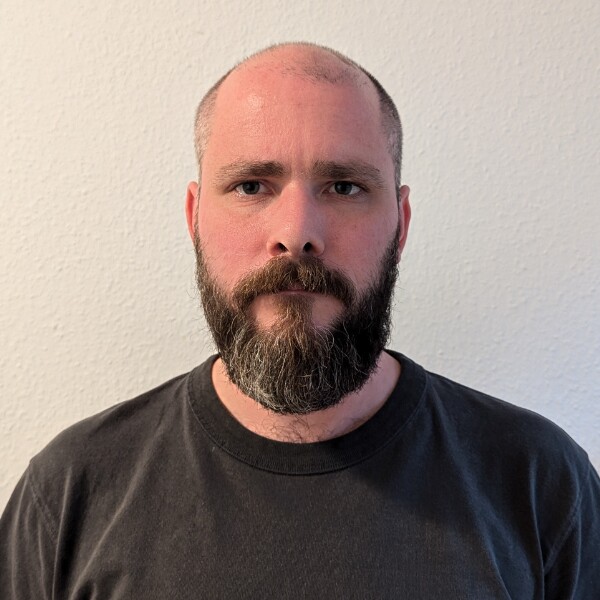
Goulding, Gregory
Gregory Goulding
Read more

Gregory Goulding
| Grant Category: | Fulbright-Nehru Academic & Professional Excellence Award (Research) |
| Project Title: | Central Borderlands: Literature, Landscape, and Identity in a Multilingual Zone |
| Field of Study: | Literature |
| Home Institution: | University of Pennsylvania, Philadelphia, PA |
| Host Institution: | , India, TBD |
| Grant Start Month: | January 2026 |
| Duration of Grant: | Six months |
Brief Bio:
Prof. Gregory Goulding is an associate professor in the Department of South Asia Studies at the University of Pennsylvania. His first book, Cold War Genres, was released with SUNY University Press in 2024. His research focus is on mid-20th-century Hindi literature, with a particular interest in ideas of space, aesthetic debates, and conceptions of the international. Some of his recent articles have appeared in Comparative Literature, Modern Asian Studies, South Asia, and the Journal of the Royal Asiatic Society.
Prof. Goulding’s Fulbright-Nehru project is posing Central India as a key location in the literary history of modern South Asia, situating it as an area shaped by its political history as a borderland between Maratha, Mughal, and later British power. He is also studying Central India’s position on the periphery of three modern literary cultures, as well as its landscape of forested mountain and scrubby plateau, home to peoples who articulate radically different ideas of space and belonging. The project aims to intervene in both current understandings of modern South Asian literatures as well as in global understandings of modern literatures after the emergence of monolingual linguistic identities.
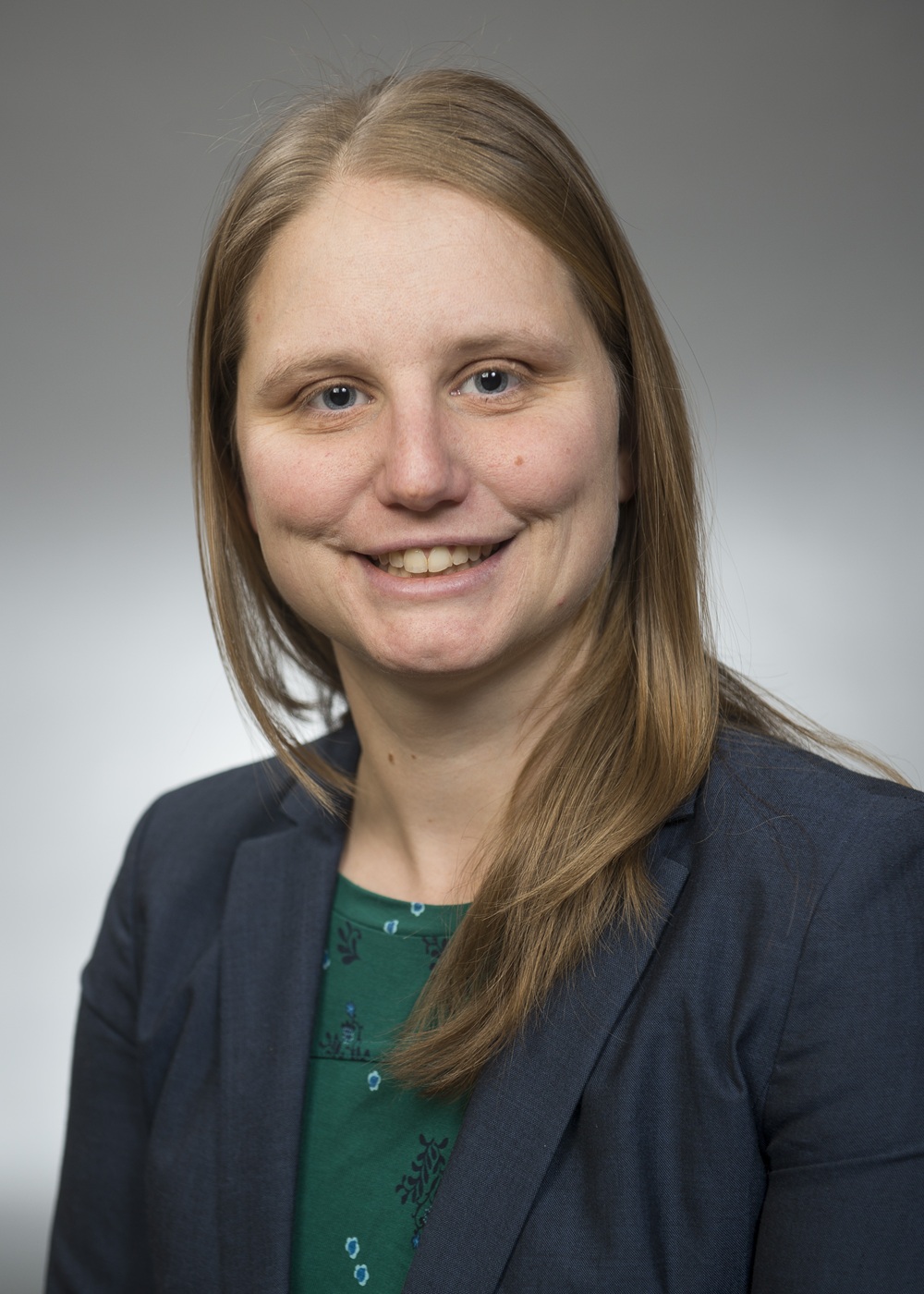
Kumpel, Emily
Emily Kumpel
Read more

Emily Kumpel
| Grant Category: | Fulbright-Nehru Academic & Professional Excellence Award (Research) |
| Project Title: | Intermittent but Reliable Water Supplies: Measuring Continuity and Predictability in Water Systems |
| Field of Study: | Engineering |
| Home Institution: | University of Massachusetts Amherst, Amherst, MA |
| Host Institution: | Indian Institute of Technology - Bombay, Mumbai, Maharashtra |
| Grant Start Month: | August 2025 |
| Duration of Grant: | Nine months |
Brief Bio:
Dr. Emily Kumpel is an associate professor in civil and environmental engineering at the University of Massachusetts Amherst. Her research advances sustainable and equitable drinking water systems through innovative approaches to water quality, household storage, and data science applications. With over 40 peer-reviewed publications on topics such as intermittent water supply, disinfection byproducts, water quality monitoring, and small water systems, she has secured more than $15 million in funding from NSF, EPA, Massachusetts agencies, and private foundations. Her current projects include an NSF CAREER award investigating household water storage as a reliability strategy, and extensive partnership work with the Massachusetts Department of Environmental Protection (MassDEP). She leads comprehensive drinking water assistance programs for the state of Massachusetts, including support for complying with the Safe Drinking Water Act, research on emerging contaminants among small and disadvantaged communities, lead testing in schools and childcare facilities, and small systems technical assistance. She has received multiple awards such as the College of Engineering Barbara H. and Joseph J. Goldstein Outstanding Junior Faculty Award (2024), Outstanding Teaching Award (2022), and a PIT@UMass Faculty Fellowship (2024). Dr. Kumpel serves as associate editor for AWWA Water Science and has extensive international field research experience, having lived and conducted research for over six years across India and countries in sub-Saharan Africa.
Before joining UMass in 2017, she was a senior research scientist at Aquaya Institute in Kenya, where she led water-quality monitoring and evaluation projects across multiple countries. She earned her PhD and MS in civil and environmental engineering from UC Berkeley and a BS in mechanical engineering from Johns Hopkins University.
Dr. Kumpel’s Fulbright-Nehru project is developing metrics for water supply continuity and predictability, testing new measurement methods, and analyzing the sources of unpredictability. He is conducting his fieldwork in and around Mumbai with the faculty at the Indian Institute of Technology Bombay. The intended outcomes of the research are at least two co-authored manuscripts, mutual student mentorship, and establishment of networks to enable future research endeavors.
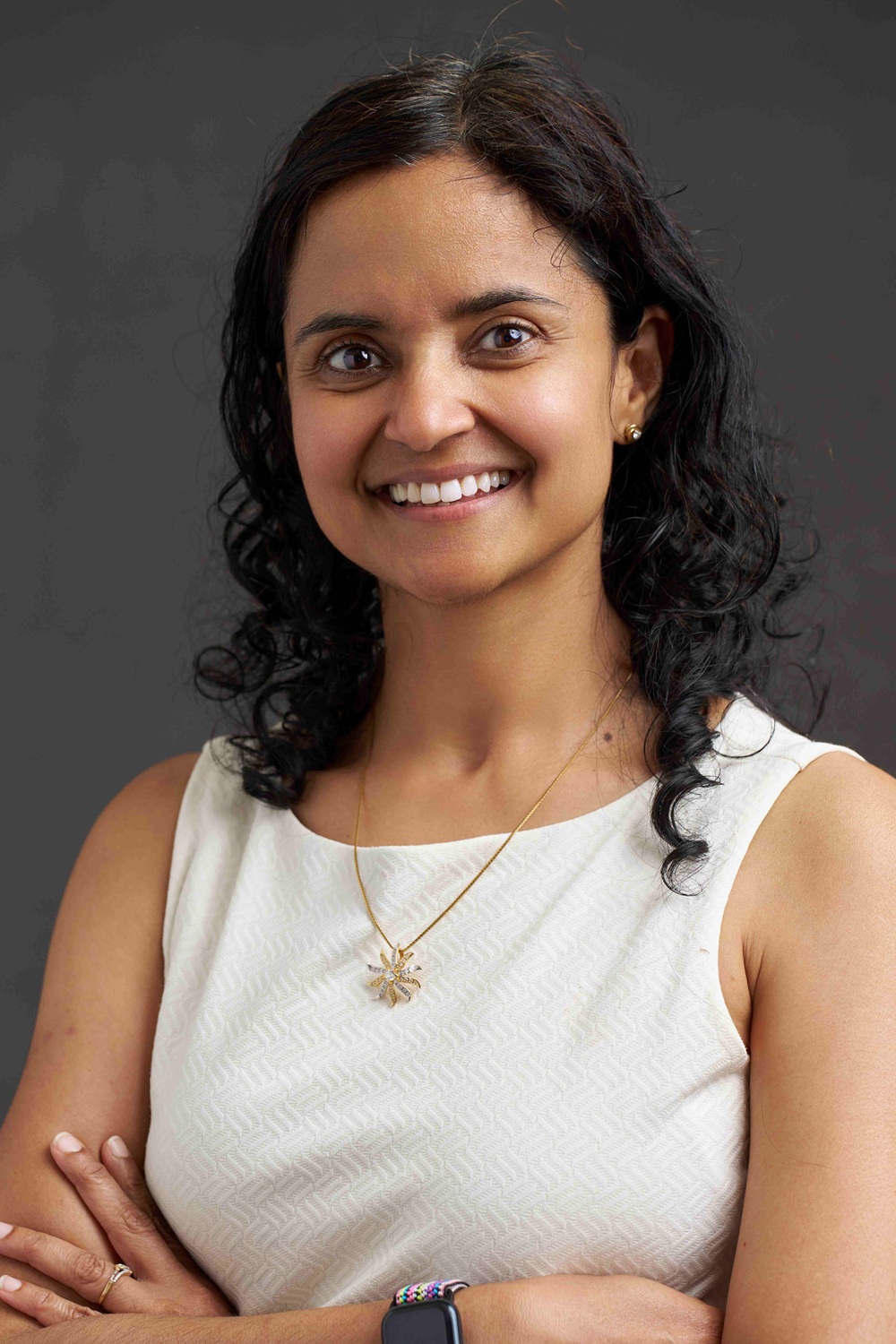
Lodha, Neha
Neha Lodha
Read more

Neha Lodha
| Grant Category: | Fulbright-Nehru Academic & Professional Excellence Award (Research) |
| Project Title: | Navigating Global Health: Culturally Relevant Tools for Early Detection of Cognitive Impairment |
| Field of Study: | Neuroscience |
| Home Institution: | Colorado State University, Fort Collins, CO |
| Host Institution: | National Institute of Mental Health and Neurosciences, Bengaluru, Karnataka |
| Grant Start Month: | January 2026 |
| Duration of Grant: | Five months |
Brief Bio:
Dr. Neha Lodha is an engineer-turned-neuroscientist. She is a tenured associate professor in the Department of Health and Exercise Science and the School of Biomedical Engineering at Colorado State University (CSU). She earned her PhD in kinesiology from the University of Florida, following a BTech in information and communication technology from DA-IICT, Gandhinagar, India.
Dr. Lodha directs the Laboratory of Movement Neuroscience and Rehabilitation at CSU. Her research applies approaches in cognitive aging, movement neuroscience, and neurorehabilitation with the goal of improving functional independence, mobility, and overall well-being of individuals facing age-related or neurological challenges. Her interdisciplinary approach bridges biomechanics, neuroscience, and digital health to better understand and support cognitive and physical functioning in everyday life. Her current work in her lab focuses on identifying early indicators of reduced mobility and cognitive performance. This includes examining how people move in their daily environments, how their cognitive and motor systems interact, and how technology can assist in rehabilitation and health monitoring. Complementing her research, Dr. Lodha leads community outreach through her lab’s initiatives. These include mobility assessments and fall-prevention screenings for older adults, as well as educational programs for students interested in science and engineering.
Dr. Lodha has authored over 50 scholarly publications, including 40 peer-reviewed journal articles, and her work has been cited more than 3,400 times. She has a strong track record in securing external research funding as a principal investigator, having obtained competitive awards from agencies like the National Institute on Aging, the American Heart Association, and the Alzheimer’s Association.
The global rise of dementia significantly affects populations in low- and middle-income countries. In communities with limited access to formal education and healthcare, cognitive impairments often go undiagnosed. Most current assessments cater to English-speaking and literate individuals and are not effective for people in other contexts. Dr. Lodha’s Fulbright-Nehru project is developing a performance-based tool designed to work across language and education levels within the Indian population. The project’s primary aim is to improve early detection of cognitive decline.
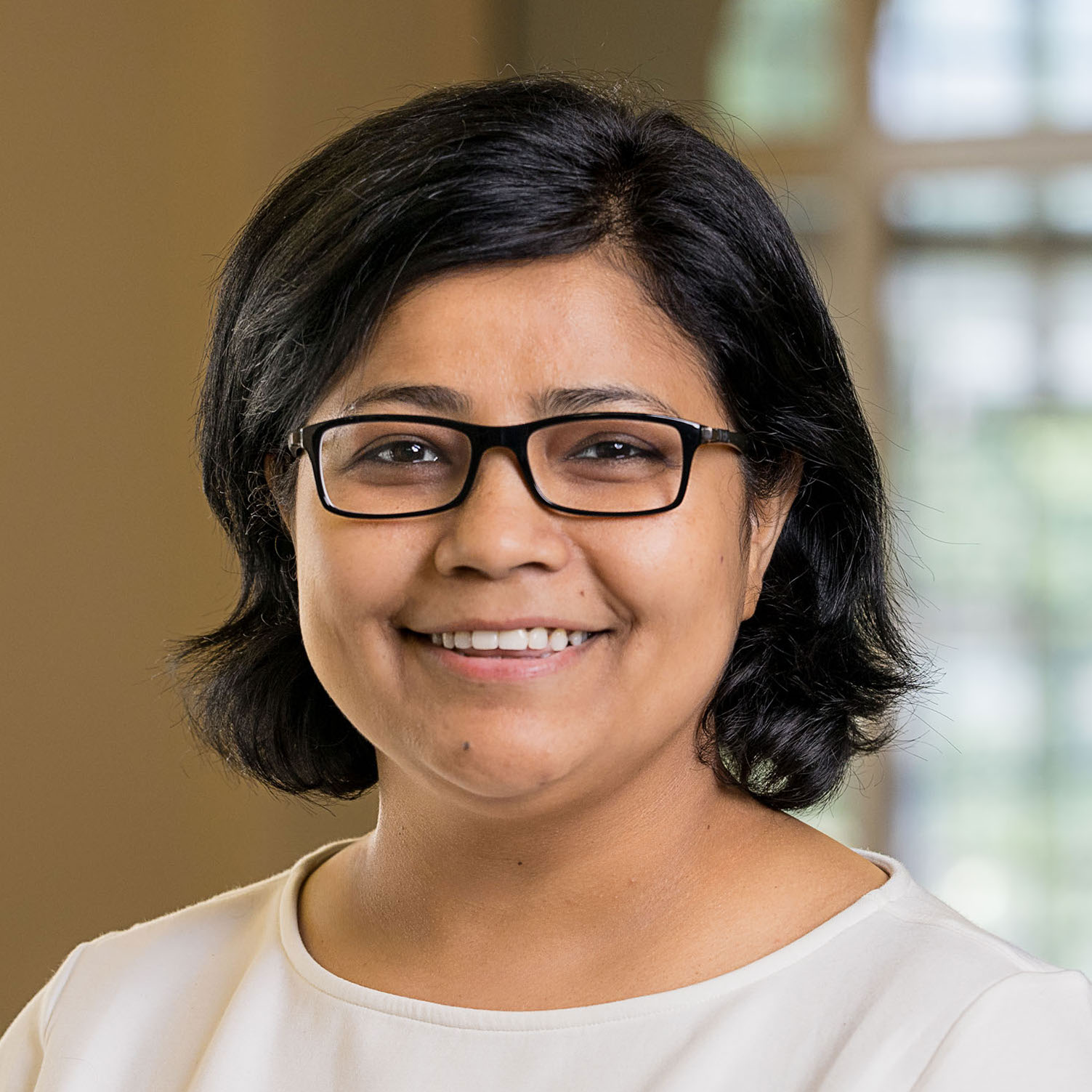
Mehta, Ranjana
Ranjana Mehta
Read more

Ranjana Mehta
| Grant Category: | Fulbright-Nehru Academic & Professional Excellence Award (Research) |
| Project Title: | Enabling Trustworthy Human–AI Teaming through Social Neuroergonomics |
| Field of Study: | Engineering |
| Home Institution: | University of Wisconsin-Madison, Madison, WI |
| Host Institution: | Indian Institute of Technology Madras, Chennai, Tamil Nadu |
| Grant Start Month: | December 2025 |
| Duration of Grant: | Six months |
Brief Bio:
Prof. Ranjana Mehta is the Grainger Institute of Engineering Professor in the Department of Industrial and Systems Engineering at the University of Wisconsin–Madison, where she serves as the director of the Neuroergonomics Lab. She earned her PhD in industrial and systems engineering from Virginia Tech in 2011 and her BTech in production engineering from the University of Mumbai in 2004. Her ongoing research program in human factors focuses on understanding and improving human performance and trust in safety-critical work settings, especially when interacting with emerging technologies like robotics and AI, and under challenging psychophysiological conditions, including stress and fatigue. Her groundbreaking research, which examines the intersection of brain and behavior in human–machine teaming, has attracted more than $19.8 million in external funding, resulting in over 200 peer-reviewed publications. She has been awarded several recognitions, including the Early Career Research Fellow award from the National Academies of Sciences, Engineering, and Medicine, the NASA IDEAS Fellow award, and the Award for Technical Innovation in Industrial Engineering from the Institute for Industrial and Systems Engineers (IISE), as well as multiple innovation and early career honors from the Human Factors and Ergonomics Society (HFES), where she became a fellow in 2023. As a member of the IISE and HFES communities, she has shown exceptional external service at both national and international levels through numerous elected and appointed roles within these professional societies. She currently serves as the editor-in-chief of the IISE Transactions of Occupational Ergonomics and Human Factors. She has also served as a member of various technical standards committees, including the American Petroleum Institute, ASTM F48.02 on Exoskeletons and Exosuits, IEEE Human–Robot Interaction Metrics and Test Methods, and ISA84.00.04 on Systematic Failure.
By employing a social neuroergonomics modeling approach, which utilizes the neurobiological foundations of social processes and behaviors in the design, engineering, and evaluation of human–AI systems, Prof. Mehta’s Fulbright-Nehru project is set to enhance understanding about trustworthy human–AI teaming across diverse team cultures and configurations. The project also aims to strengthen trustworthy AI research through collaborative community building.
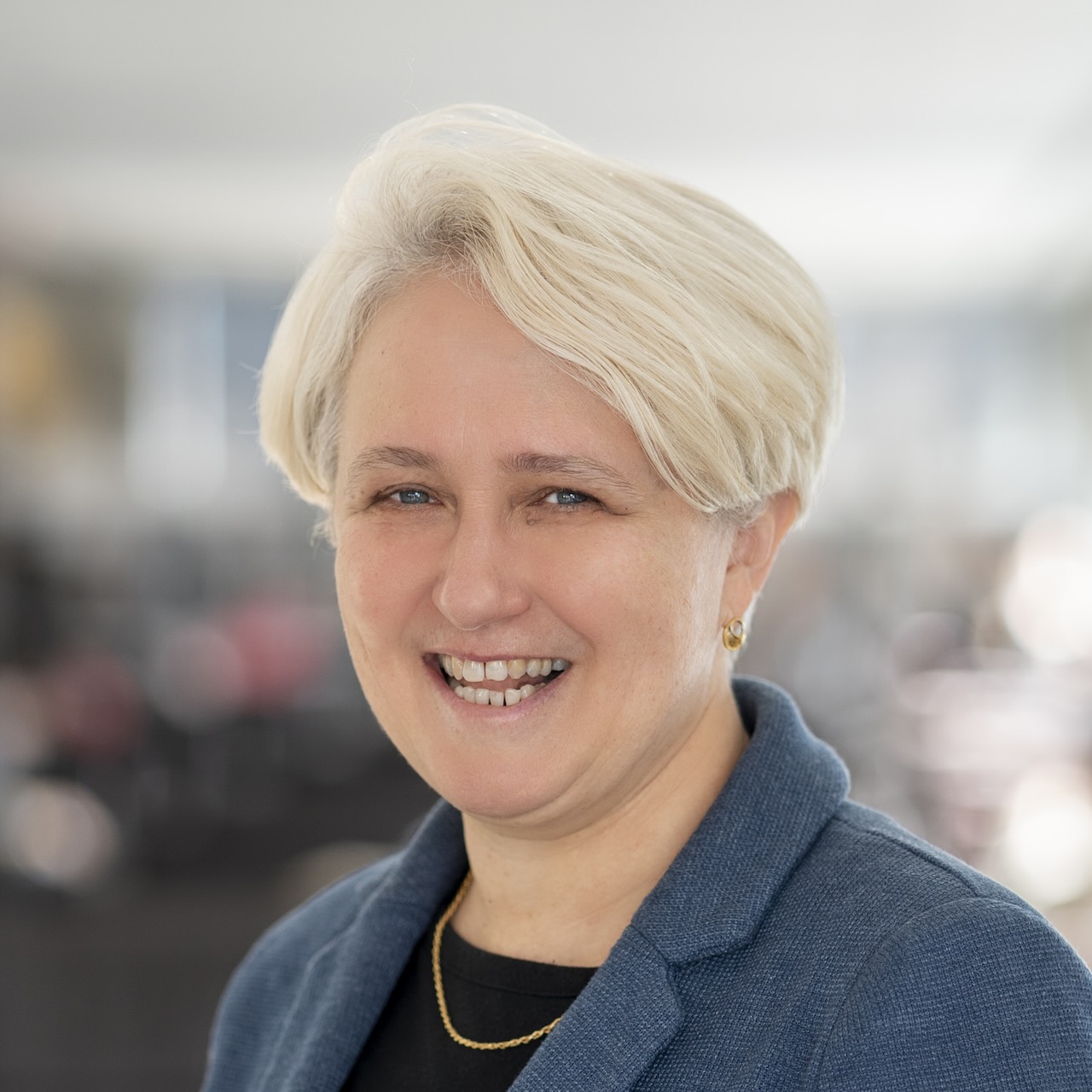
Mitchell, Lisa
Lisa Mitchell
Read more

Lisa Mitchell
| Grant Category: | Fulbright-Nehru Academic & Professional Excellence Award (Research) |
| Project Title: | The History of the Government Job in India |
| Field of Study: | History |
| Home Institution: | University of Pennsylvania, Philadelphia, PA |
| Host Institution: | English and Foreign Language University, Hyderabad, Telangana |
| Grant Start Month: | December 2025 |
| Duration of Grant: | Six months |
Brief Bio:
Dr. Lisa Mitchell is professor in the Department of South Asia Studies at the University of Pennsylvania, where she teaches courses in anthropology, history, and urban studies. She is the author of Hailing the State: Indian Democracy between Elections (Duke University Press, 2023, and Permanent Black, 2023) and Language, Emotion, and Politics in South India: The Making of a Mother Tongue (Indiana University Press, 2009, and Permanent Black, 2010), which received the Edward Cameron Dimock, Jr. Prize in the Indian Humanities from the American Institute of Indian Studies. She is currently working on two book projects, one titled “The Government Job in India” and the second on translations of transnationally circulating political ideas, provisionally entitled, “The Multiple Genealogies of Indian Democracy: Global Intellectual History in Translation”. She received her PhD in sociocultural anthropology from Columbia University. Previously, she taught history at Queens College (CUNY), Bowdoin College, and the University of Washington, and anthropology at the University of Notre Dame. She has been the recipient of fellowships from the National Endowment for the Humanities, Wenner-Gren Foundation, Mellon Foundation, the European Research Council, and the American Institute of Indian Studies, and has been a visiting fellow at the University of Cambridge, a Mercator Visiting Fellow in Global Intellectual History at the Freie Universität in Berlin, and a senior research fellow at the Max Planck Institute for Social Anthropology in Halle. In 2020, she was a recipient of the Lindback Award for Distinguished Teaching at the University of Pennsylvania.
Dr. Mitchell’s Fulbright-Nehru project is examining the idea of the government job in the history of political imagination in modern India. Using archives from the Nizam’s state of Hyderabad and Indian constitutional debates, cinematic and literary portrayals of civil servants, and oral histories from current and former government employees, it is tracing historical efforts to redistribute employment opportunities, create a new middle class, and offer guaranteed employment as a form of social welfare. Assessing India’s unique social experiments in the redistribution of opportunity, the project will culminate in a book-length anthropological history of the government job in India.
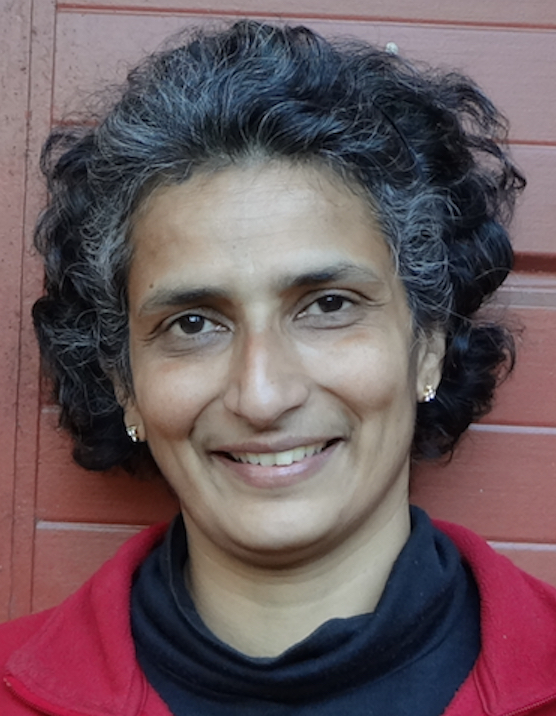
Sitharam, Meera
Meera Sitharam
Read more

Meera Sitharam
| Grant Category: | Fulbright-Nehru Academic & Professional Excellence Award (Research) |
| Project Title: | Exploring Connections: Rigidity, Flexibility, Complexity, and Applications of Geometry Constraints |
| Field of Study: | Computer Science |
| Home Institution: | University of Florida, Gainesville, FL |
| Host Institution: | Chennai Mathematical Institute, Chennai, Tamil Nadu |
| Grant Start Month: | November 2025 |
| Duration of Grant: | Six months |
Brief Bio:
Dr. Meera Sitharam is professor of computer science and affiliate professor of mathematics at the University of Florida in Gainesville. After her BTech from the Indian Institute of Technology Madras, she completed her doctoral studies at the University of Wisconsin–Madison in computer science and held positions at Kent State University and Purdue University. She was an Alexander von Humboldt Postdoctoral Fellow at the University of Bonn, a Fields Institute Fellow, and an ICERM Fellow. Her research and over 100 peer-reviewed publications range from pure mathematics (discrete geometry) and theoretical computer science (algorithmic foundations and complexity theory) to the development of open source mathematical software (computational geometry) and geometric modeling in the natural and social sciences and engineering (soft-matter and biophysical modeling, algorithmic game theory, computer-aided mechanical and microstructural design). Her research group’s alumni include at least 15 doctorate holders now in academia, industry and entrepreneurial positions. As a vocal advocate for public higher education, Dr. Sitharam is currently chapter president and chief negotiator for the United Faculty of Florida at the University of Florida. Her academic outreach activities include: faculty advisorship of the Asha for Education chapter, where she works closely with grassroots partners in Tamil Nadu working toward education access and quality; and founding STEM women researchers’ development (Steward@IITM) to mentor and address the barriers faced by women researchers.
She is a graded All India Radio veena artist and engages with a broad range of music.
Dr. Sitharam’s Fulbright-Nehru project, “Exploring Connections: Rigidity, Flexibility, Complexity, and Applications of Geometry Constraints”, aims to leverage the host institution’s unique combination of expertise – on parameterized complexity and derandomization of algorithms, configuration space topology, and soft-matter modeling – to conduct research on Geometric Constraint Systems (GCS), a vibrant, intuitively accessible area that bridges mathematical communities. The GCS lens also intends to spur progress on fundamental theoretical science at the host institution. The expected project outcomes include several peer-reviewed articles, an international workshop, grant proposals for joint US–India programs, seminar series at the host institution, and addressing of research underrepresentation.
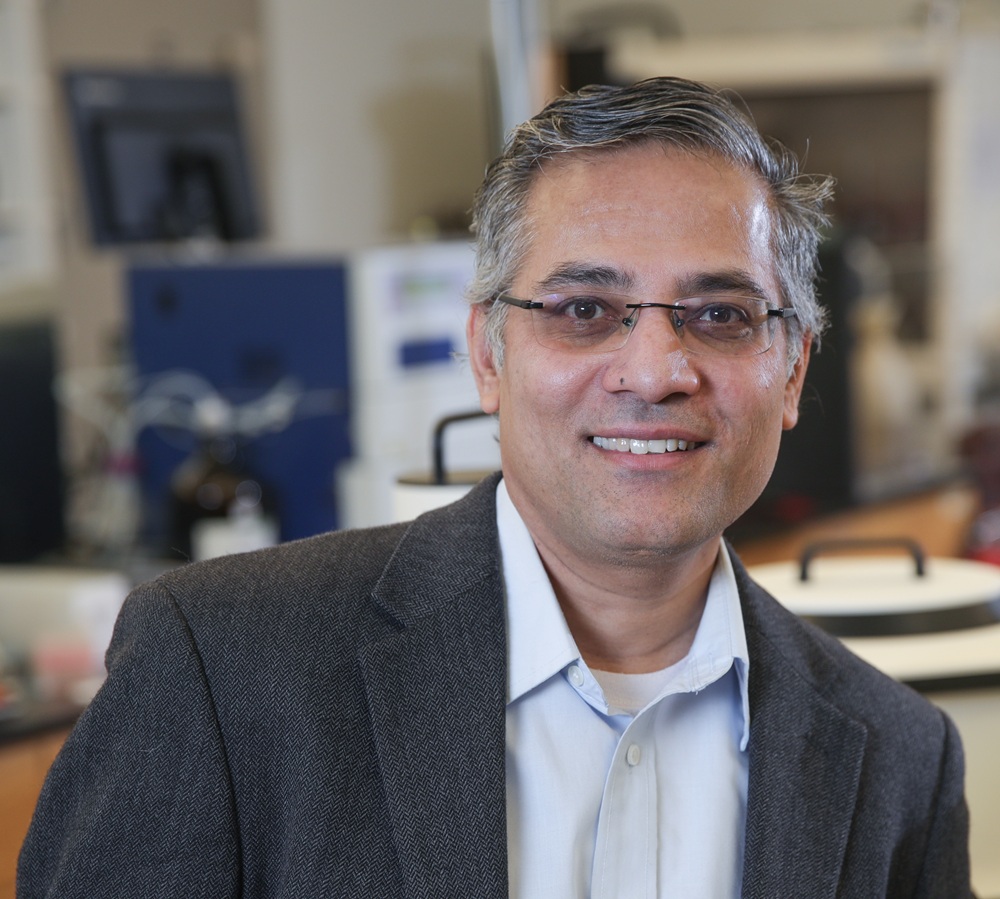
Sivaguru, Jayaraman
Jayaraman Sivaguru
Read more

Jayaraman Sivaguru
| Grant Category: | Fulbright-Nehru Academic & Professional Excellence Award (Research) |
| Project Title: | Light-driven Strategies for Developing a Sustainable Future |
| Field of Study: | Chemistry |
| Home Institution: | Bowling Green State University, Bowling Green, OH |
| Host Institution: | Indian Institute of Science, Bengaluru, Karnataka |
| Grant Start Month: | March 2026 |
| Duration of Grant: | Four months |
Brief Bio:
Dr. Jayaraman Sivaguru is a distinguished university professor at Bowling Green State University (BGSU), Ohio. His recognitions include the 2008 NSF CAREER award, the 2010 Grammaticakis-Neumann Prize from the Swiss Chemical Society, and the young investigator awards from the Inter-American Photochemical Society (2011) and Sigma-Xi (2012). Besides, he won the 2012 Peltier Award for Innovation in Teaching from NDSU. He was a visiting young professor at the Global Centre for Excellence, Osaka University, and was also visiting fellow of the Chinese Academy of Sciences under the President’s International Fellowship Initiative. He serves as the American editor for the Journal of Photochemistry and Photobiology A: Chemistry and as the co-editor-in-chief of the Journal of Photochemistry and Photobiology. In 2021, he was awarded the Honda-Fujishima Lectureship by the Japanese Photochemistry Association for outstanding achievement in photochemistry. In 2023, he received the Olscamp Award from BGSU. In 2025, he was named as the 48th Probst Lecturer at SIUE. Dr. Sivaguru is a member of the International Organizing Committee for the IAPS-2026 meeting in Sao Paulo and will also co-chair the 2027 Gordon Conference on Photochemistry.
His research interests include: uncovering new excited state chemical reactivity; light-induced axial to central chiral transfer; asymmetric organo-photocatalysis; supramolecular photocatalysis with water-soluble nanocontainers; light-responsive materials for polymer circularity; development of high-efficiency photoinitiators; and designing light-initiated strategies for eye protection and ophthalmic applications (e.g. contact lenses and other eyewear).
Dr. Sivaguru is passionate about helping students to gravitate toward STEM disciplines. Toward this, in 2007, he launched an outreach program called PICNICS (Parents Involvement with Children Nurturing Intellectual Curiosity in Sciences).
For his Fulbright-Nehru project, Prof. Sivaguru is collaborating with Prof. N. Jayaraman of the Indian Institute of Science on photochemical aspects within dendritic systems. He is also collaborating with Prof. Ashok Mishra at the Indian Institute of Technology Madras on photophysical studies. Besides, Prof. Sivaguru is holding classes on photochemistry. He is also evaluating the feasibility of adapting PICNICS to an Indian setting.
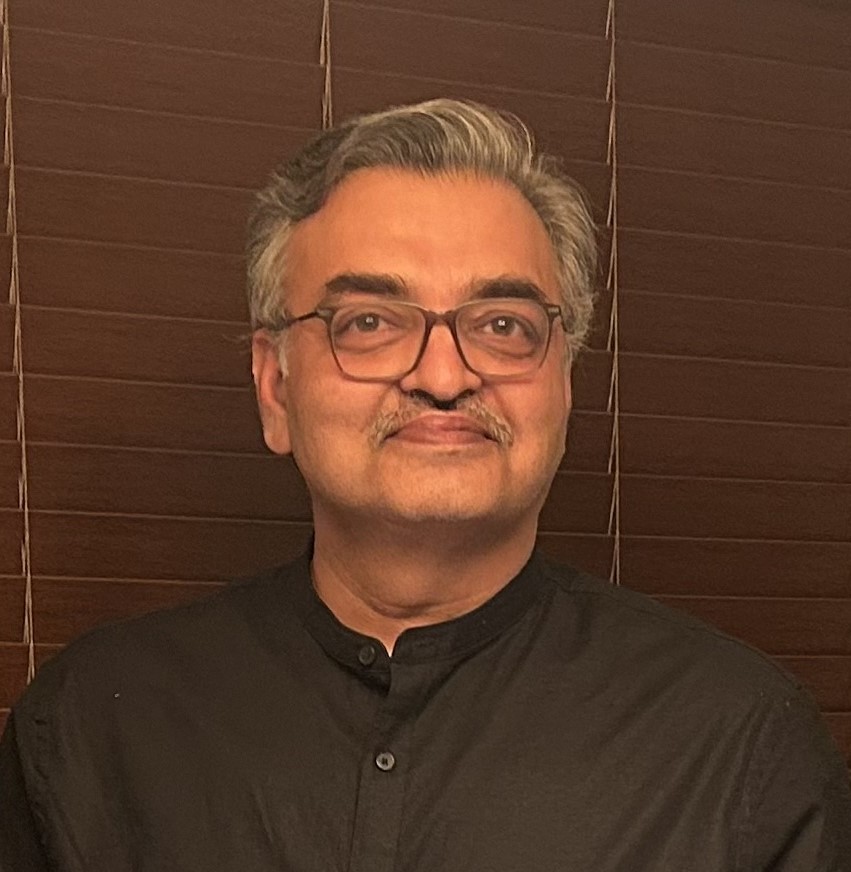
Talapatra, Saikat
Saikat Talapatra
Read more

Saikat Talapatra
| Grant Category: | Fulbright-Nehru Academic & Professional Excellence Award (Research) |
| Project Title: | Development of Porous Carbon Materials Derived from Biowaste for Carbon Dioxide Capture and Storage |
| Field of Study: | Materials Science |
| Home Institution: | Southern Illinois University, Carbondale, IL |
| Host Institution: | Indian Institute of Technology-Kharagpur, Kharagpur, West Bengal |
| Grant Start Month: | October 2025 |
| Duration of Grant: | Six months |
Brief Bio:
Dr. Saikat Talapatra is a professor and director of the School of Physics and Applied Physics at Southern Illinois University Carbondale. He obtained his BSc degree in physics and BEd from RIE Bhubaneswar, India, and MSc in physics from Jadavpur University, Kolkata. Thereafter, he graduated from the Department of Physics at Southern Illinois University with an MS in physics and a PhD in engineering science. He worked as a postdoctoral scholar at Rensselaer Polytechnic Institute, Troy, New York, before returning to Southern Illinois University as a faculty. He is a condensed matter physicist/materials scientist, with research interests in the synthesis and characterization of a variety of nanoscale materials and structures materials for multiple applications related to electronics, energy, and environment.
Dr. Talapatra’s Fulbright-Nehru project is investigating the adsorptive surface properties of the porous carbon materials obtained from biowaste products in order to develop them for carbon dioxide capture and storage. The success of the project could lead to applications that are needed for a carbon neutral (net-zero) society.
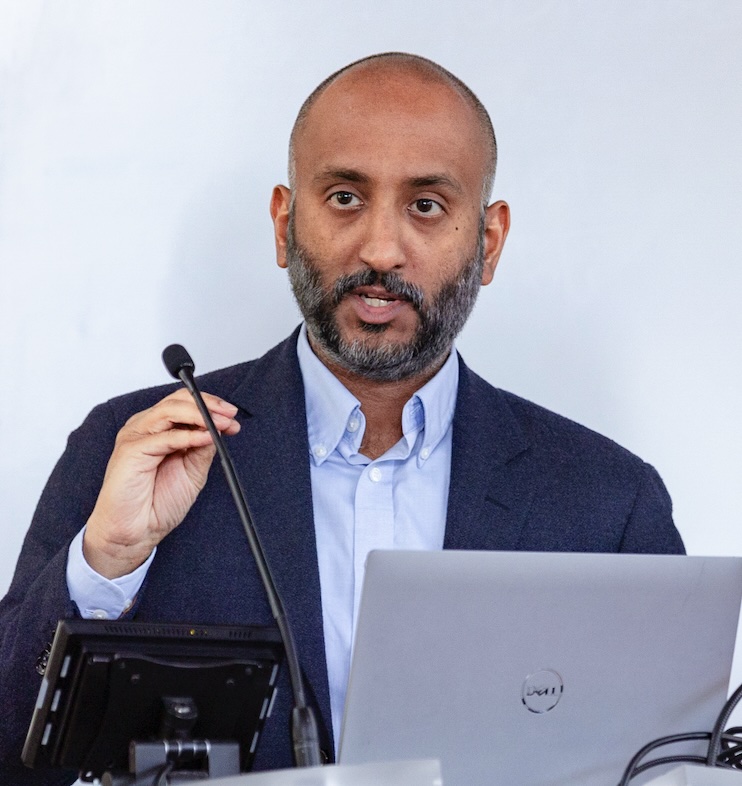
Verghese, Ajay
Ajay Verghese
Read more

Ajay Verghese
| Grant Category: | Fulbright-Nehru Academic & Professional Excellence Award (Research) |
| Project Title: | Two Studies of Political Hinduism |
| Field of Study: | Political Science |
| Home Institution: | Middlebury College, Middlebury, VT |
| Host Institution: | Mohanlal Sukhadia University, Udaipur, Rajasthan |
| Grant Start Month: | May 2026 |
| Duration of Grant: | Six months |
Brief Bio:
Dr. Ajay Verghese is an associate professor of political science at Middlebury College, Vermont. He received his PhD in 2013 from George Washington University and was a postdoctoral fellow at the Asia-Pacific Research Center at Stanford University. His research interests include Indian politics, ethnic violence, historical legacies, religion, and methodology. His first book, The Colonial Origins of Ethnic Violence in India, was published by Stanford University Press in 2016, and his articles have been published in Modern Asian Studies, Terrorism and Political Violence, Journal of Development Studies, Politics & Society, Politics and Religion, Sociological Theory, and Journal of Historical Political Economy. He is a winner of the Ted Jelen Award and has been honorably mentioned in the IPSA Award for Concept Analysis in Political Science.
Dr. Verghese’s Fulbright-Nehru project entails two studies of political Hinduism over the course of six months in India. The first study is based in Udaipur, where he is developing a novel theory explaining the rise in the popularity of spiritual teachers (often called “gurus”, “yogis”, or “godmen”) who are explicitly associated with political parties and organizations. The second study is examining a potential backlash to the increasing politicization of religion via the growth of “secular Hinduism” among upper middle-class Hindus in Delhi.

Yethiraj, Arun
Arun Yethiraj
Read more

Arun Yethiraj
| Grant Category: | Fulbright-Nehru Academic & Professional Excellence Award (Research) |
| Project Title: | Active Matter in Disordered Materials |
| Field of Study: | Chemistry |
| Home Institution: | University of Wisconsin-Madison, Madison, WI |
| Host Institution: | Tata Institute of Fundamental Research, Mumbai, Maharashtra |
| Grant Start Month: | August 2025 |
| Duration of Grant: | Four months |
Brief Bio:
Dr. Arun Yethiraj was born in India and received his BTech in chemical engineering from the Indian Institute of Technology Bombay. He received an MS from Louisiana State University, a PhD from North Carolina State University, working with Professor Carol Hall, and did postdoctoral research at the University of Illinois, working with Professor Kenneth Schweizer. He joined the faculty of the Department of Chemistry at the University of Wisconsin in 1993. His research interest is in the statistical mechanics of complex fluids, including polymers, surfactants, ionic liquids, and biopolymers.
His hobbies include tennis, guitar, and running.
“Active matter” refers to a class of systems that are composed of self-propelled entities that convert stored energy into directed motion. The goal of Dr. Yethiraj’s Fulbright-Nehru research is to obtain a fundamental understanding of active matter in complex environments. His research project at the Tata Institute of Fundamental Research is using computational studies with machine learning analyses to reproduce experimental studies on robotic and molecular systems in order to obtain a fundamental understanding of the effect of crowding and noise on active processes, thereby allowing for the elucidation of transport mechanisms in other systems.
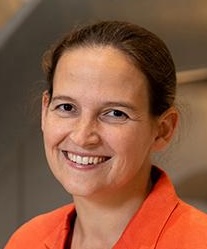
Enriquez, Ana
Ana Enriquez
Read more

Ana Enriquez
| Grant Category: | Fulbright-Nehru Academic & Professional Excellence Award (Teaching & Research) |
| Project Title: | Copyright Law, Libraries, and Access to Knowledge |
| Field of Study: | Law |
| Home Institution: | Pennsylvania State University, University Park, PA |
| Host Institution: | National Law School of India University, Bengaluru, Karnataka |
| Grant Start Month: | February 2026 |
| Duration of Grant: | Four and a half months |
Brief Bio:
Ms. Ana Enriquez is a librarian and lawyer who advocates for copyright law and research practices that enable all people to access and contribute to research. She is the copyright officer and head of the Office of Scholarly Communications and Copyright in the University Libraries at Pennsylvania State University. At Penn State, she manages the implementation of the university’s open access policy and the library services for researchers on scholarly communications and copyright.
Ms. Enriquez has been teaching copyright for 12 years, most recently for CopyrightX: Libraries, a global network of copyright courses for people working in libraries, archives, and museums around the world. She has also taught for the Library Copyright Institute and the Association of College and Research Libraries (U.S.). Her research focuses on making copyright work for libraries and researchers, and on using library expertise to advance access to knowledge. She has published, presented, and submitted comments to U.S. federal agencies on these topics. She holds a JD from the University of California, Berkeley, and an AB in history and literature from Harvard College.
Ms. Enriquez’s Fulbright-Nehru project is attempting to advance access to knowledge by strengthening shared understanding among U.S. and Indian lawyers and librarians. At the National Law School of India University in Bengaluru, she is co-teaching a copyright course with Professor Arul Scaria and also offering a course for librarians. Besides, she is creating course materials to enrich her own future teaching assignments and sharing them for broad reuse by copyright teachers, including those at CopyrightX. In parallel with teaching, Ana is advancing her research on copyright law and access to knowledge, with a particular focus on copyright’s impact on libraries, archives, and museums under Indian and U.S. law.

